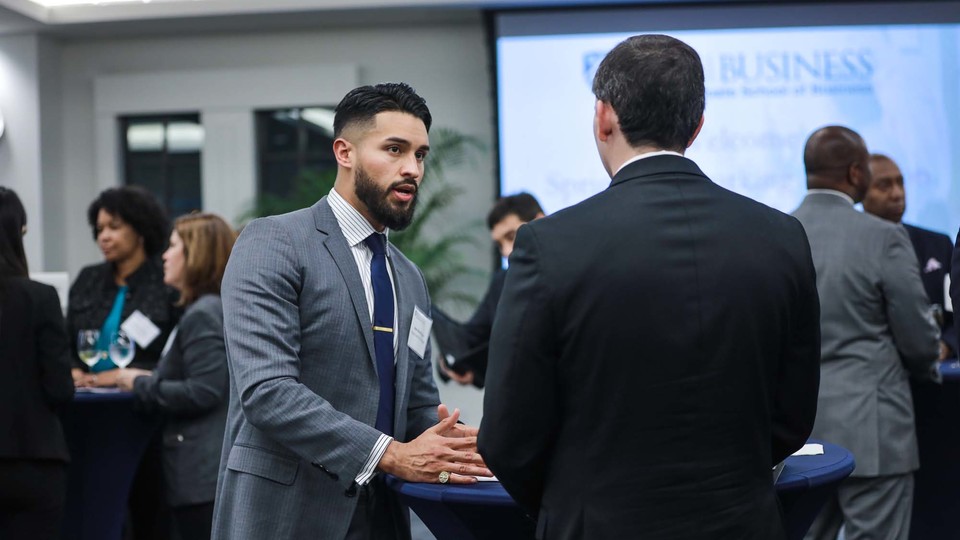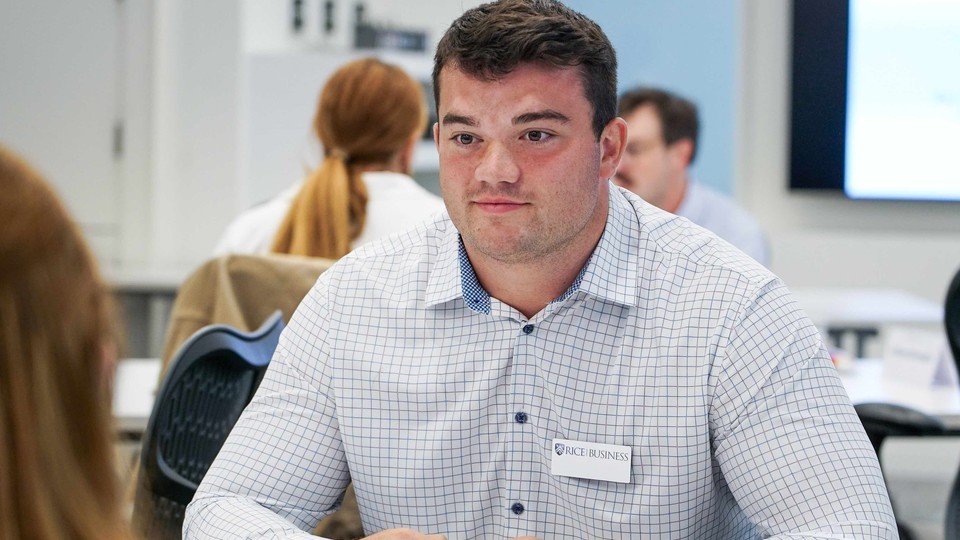Five Tips for Moving to the U.S. as an International MBA Student

As one of the top-ranked MBA programs in the country, Rice Business attracts students from around the world seeking to pursue an MBA in the U.S. The process of starting a new adventure in the U.S. is both thrilling and stressful. We asked full-time MBA students from Colombia, Honduras, India, Nigeria and South Korea what advice they have for settling in Houston.
Here is what they shared:
1. Be proactive about connecting with students and alumni.
International MBA students and alumni can share valuable tips for success and help you recognize key cultural differences between the U.S. and your home country. Sanober Hussain (’24, India) wishes she’d known how useful LinkedIn would be before arriving in the U.S. She encourages everyone to establish themselves on that platform, and to build a network of people who can help you transition to life in the states.
Rice staff and student clubs proved to be another valuable support system. “Everyone here wants to help you. In fact, people will give you more than you ask for. That’s part of what makes Rice such an amazing place.” But you must take initiative and ask questions, Sanober says. “For some, asking for assistance will go against your home country’s culture. But in the U.S., you have to get in the habit of reaching out to people you don’t know for informational support.” One last tip: When you meet someone new, ask them, “Who else should I talk to?”
2. Remember: There are no bad questions.
Juno Lee (’24, South Korea) remembers resisting the urge to ask questions during International Launch – a weeklong program organized by the Office of Academic Programs and Student Experience. The program prepares new international students to navigate life and business culture in the U.S. Lee recalls listening to a panel of second-year students about acclimating to Houston. He appreciated their recommendations, but he had certain questions that, in the moment, he was too embarrassed to ask in front of his new peers – questions about banking, taxes and housing. He remembers feeling worried people would judge him for seeming ignorant. Looking back, he understands that no one would have thought badly of him. In fact, most people in the room would have benefited from hearing the answers to his questions. “There’s no such thing as a bad question,” he says, “especially when you are getting settled.” And you can always ask questions privately rather than in a room full of new classmates.
Interested in Rice Business?
3. Prepare for a smooth transition.
The goal for every student is to confidently collect their luggage, pass through the U.S. port of entry, and take transportation to their new home – without incident. But to do that, you'll need to do research and speak to many people months before traveling. For example, transportation from the airport to Rice can take some planning. Most taxis take payment by card rather than cash, and rideshare companies use mobile apps. This represents a potential problem for students who do not yet have a U.S. bank account or cellphone. It's the same approach you'll need to take toward something like a medical emergency. Before coming to Rice, spend time learning American medical terms and do research about what is involved in seeing a doctor.
4. Become an expert in your long-term immigration options.
If you’re attending Rice on a student visa, you’ll need to become familiar with mid- and long-term options for work authorization. As Diana Martinez Pietro (’23, Colombia/Brazil) knows too well, “being an international student means having a layer of legal stress that domestic students are lucky to not worry about.” Diana recommends meeting with a lawyer after arriving in Houston, and speaking with other international students, the Career Development Office (CDO) and the Office of International Students and Scholars (OISS). International students should do research on companies that are willing to sponsor for an H-1B. And, Diana says, everyone should develop an immigration portfolio from the beginning. “Everything you accomplish in work and life can double as an accomplishment for future immigration petitions.” If you’re interested in staying in the U.S. long-term, a lawyer can guide you toward applying for permanent residency. “Planning for these things early on will make you better equipped to navigate the immigration system and become more attractive on the job market.”
5. Come with a purpose.
Like other students we spoke with, José Pacheco (’24, Honduras) has a lot of practical advice for international students – utilities, transportation and networking – and he’s happy to share that with you via LinkedIn! (One important tip is to beware of scams that target international students.) But his final tip is arguably the most important. “You need to ask yourself, ‘What do I want to take away from this program?’” He says, “Of course it’s important to be curious. Be open. Have a growth mindset. But you need to know who you are and what you want to get from this experience.” To practice your sense of purpose, you need to be engaged with the Rice community. There are a lot of volunteer opportunities, and you should “come with the mindset of helping others.” Lastly, José says, “Remember to feel proud and privileged to be part of this program. It’s one of the best in the world.”


